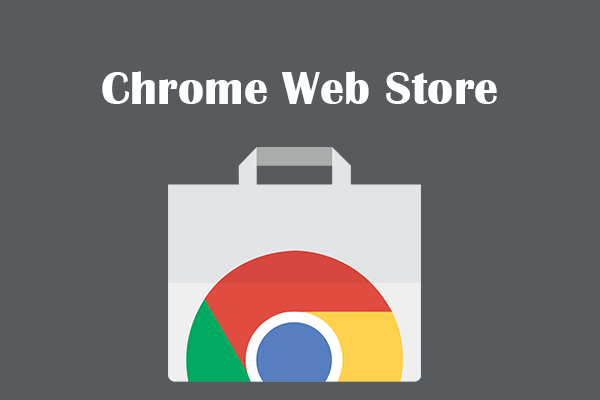In the modern era, the phrase “web store” is ubiquitous, embodying the digital age’s revolution in commerce. A web store refers to an online platform where businesses sell their products or services, providing a virtual marketplace accessible to consumers worldwide. This concept has transformed the retail landscape, enabling businesses to reach customers beyond geographical boundaries and operate around the clock. Let’s delve deeper into the evolution, significance, and future of web stores.
Evolution of Web Stores
The origins of web stores can be traced back to the early days of the internet when businesses began experimenting with online sales. In the mid-1990s, pioneers like Amazon and eBay paved the way for e-commerce by establishing digital platforms for buying and selling goods. Initially, web stores were rudimentary, offering limited product selections and basic payment options.
However, with advancements in technology and the increasing popularity of online shopping, web stores evolved rapidly. The introduction of secure payment gateways, robust e-commerce platforms, and user-friendly interfaces revolutionized the online retail experience. Today, web stores come in various forms, from small businesses selling niche products to multinational corporations offering extensive catalogs.
Significance of Web Stores
The rise of web stores has had a profound impact on both businesses and consumers, reshaping the way commerce is conducted. For businesses, web stores offer numerous advantages, including:
Global Reach: Web stores transcend geographical boundaries, allowing businesses to reach a global audience without the need for physical storefronts.
24/7 Accessibility: Unlike traditional brick-and-mortar stores with fixed operating hours, web stores are accessible round the clock, catering to customers’ needs at any time of day.
Cost-Effectiveness: Setting up and maintaining a web store is often more cost-effective than establishing a physical retail location, as it eliminates expenses such as rent, utilities, and staffing.
Data Analytics: Web stores provide valuable insights into consumer behavior through data analytics, enabling businesses to optimize their marketing strategies and product offerings.
Personalization: With the use of algorithms and customer data, web stores can personalize the shopping experience, offering tailored recommendations and promotions based on individual preferences.
For consumers, web stores offer unparalleled convenience and choice:
Convenience: Shopping from the comfort of one’s home eliminates the need to travel to physical stores, saving time and effort.
Product Variety: Web stores offer a vast array of products spanning diverse categories, providing consumers with a wider selection compared to traditional retail outlets.
Price Comparison: Online shopping facilitates easy price comparison between different vendors, enabling consumers to find the best deals and discounts.
Accessibility: Web stores are accessible to individuals with mobility issues or those residing in remote areas, ensuring inclusivity in the shopping experience.
Future Trends

As technology continues to advance, the future of web stores holds exciting possibilities. Some emerging trends shaping the future of online retail include:
Mobile Commerce (M-commerce): With the proliferation of smartphones and tablets, M-commerce is on the rise, with more consumers opting to shop using mobile devices. Web stores will need to prioritize mobile optimization and responsive design to cater to this trend effectively.
Augmented Reality (AR) and Virtual Reality (VR): AR and VR technologies are poised to transform the online shopping experience by allowing consumers to visualize products in real-world environments before making a purchase. Web stores integrating AR and VR features can enhance engagement and reduce purchase hesitation.
Voice Commerce: The popularity of voice-activated smart devices like Amazon Echo and Google Home presents new opportunities for voice commerce. Web stores may incorporate voice-enabled shopping functionalities to cater to consumers’ growing preference for hands-free interactions.
Sustainability and Ethical Shopping: As environmental and social concerns gain prominence, consumers are increasingly seeking sustainable and ethically sourced products. Web stores that prioritize sustainability and ethical practices in their offerings are likely to resonate with conscientious consumers.
In conclusion, web stores have become indispensable components of the modern retail landscape, offering unparalleled convenience, choice, and accessibility to both businesses and consumers. As technology continues to evolve, web stores will continue to adapt and innovate, shaping the future of commerce in profound ways. Embracing these changes and staying abreast of emerging trends will be key for businesses looking to thrive in the dynamic world of online retail.
FAQ’s
What is a web store?
A web store, also known as an online store or e-commerce website, is a digital platform where businesses sell their products or services over the internet. It provides a virtual marketplace for consumers to browse, select, and purchase items online.
How does a web store work?
A web store operates similarly to a physical retail store but in a digital format. Businesses set up an online storefront where they showcase their products or services, along with detailed descriptions, images, and prices. Customers visit the web store, browse through the offerings, add items to their cart, and proceed to checkout. Payment is typically made electronically, and the purchased items are then shipped to the customer’s specified address.
What are the advantages of using a web store?
Web stores offer several benefits, including:
Global reach, allowing businesses to reach customers worldwide.
24/7 accessibility, enabling customers to shop at any time, from anywhere.
Cost-effectiveness compared to traditional brick-and-mortar stores.
Data analytics capabilities for insights into customer behavior and preferences.
Personalization options to enhance the shopping experience for customers.
How do I set up a web store?
Setting up a web store involves several steps, including:
Choosing an e-commerce platform or building a custom website.
Selecting a domain name and hosting provider.
Designing the layout and user interface of the web store.
Adding products or services, along with descriptions, images, and prices.
Integrating payment gateways for secure online transactions.
Implementing shipping and fulfillment processes.
Testing the website for functionality and usability.
Launching the web store and promoting it through marketing channels.
What are some popular e-commerce platforms for building web stores?
There are several e-commerce platforms available for building web stores, including:
Shopify
WooCommerce (for WordPress websites)
BigCommerce
Magento
Wix
Squarespace
How can I attract customers to my web store?
To attract customers to your web store, you can employ various marketing strategies, such as:
Search engine optimization (SEO) to improve your website’s visibility in search engine results.
Social media marketing to engage with potential customers on platforms like Facebook, Instagram, and Twitter.
Email marketing campaigns to reach out to your target audience with promotions, discounts, and product updates.
Content marketing, such as blogging and creating informative product guides, to establish your brand as an authority in your industry.
Paid advertising, including pay-per-click (PPC) campaigns on platforms like Google Ads and social media ads on Facebook and Instagram.
These FAQs cover some of the basic questions about web stores and provide insights into their functionality, advantages, and setup process. If you have any further inquiries, feel free to ask!




